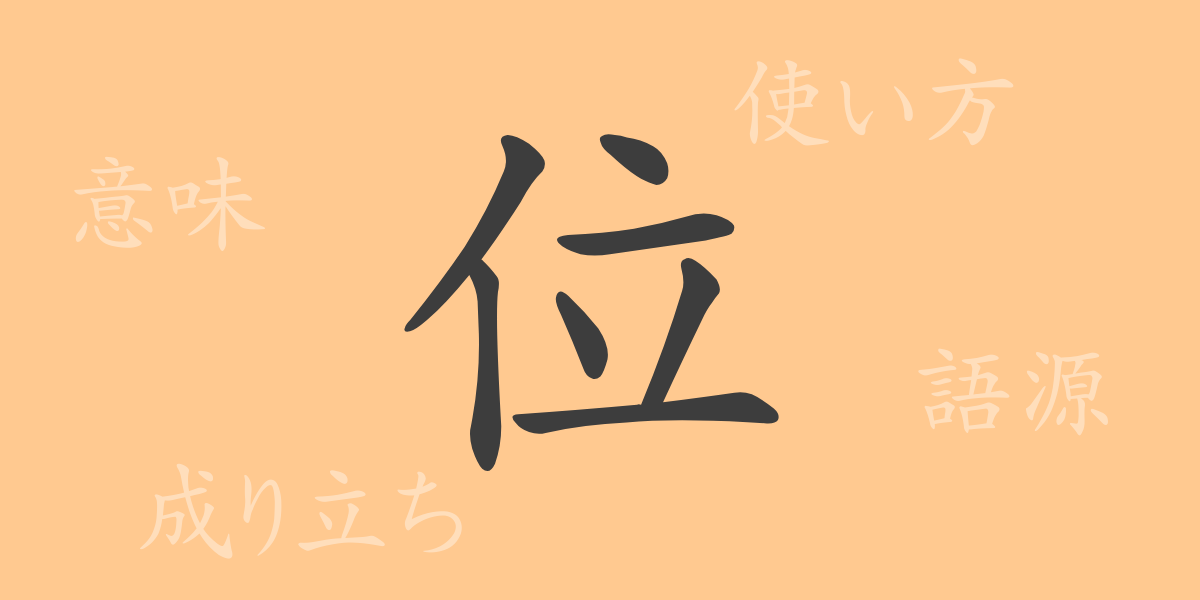“
Japanese culture boasts a rich array of Kanji, each with profound meanings embedded in its history and usage. ‘位’ (I) is one such Kanji, pivotal in depicting social status to mathematical units across various contexts. This article delves into the history, meanings, applications, and cultural significance of ‘位’, enriching our understanding of its role in Japanese culture.
Origins of 位 (I)
The Kanji ‘位’ originated in ancient China, evolving from a pictograph symbolizing a seat or throne, used by individuals of high status. This depiction underscored authority and position, gradually acquiring broader implications over time. In Japanese, ‘位’ has cemented its importance, signifying a range of concepts from authority to positional status.
Meaning and Usage of 位
‘位’ primarily denotes rank or order, such as social hierarchy or mathematical units. It also conveys respect, used in phrases like ‘お位’ to express reverence. Additionally, ‘位’ describes positions like ‘第三位’ (third place), highlighting its versatility in everyday Japanese.
Readings, Stroke Count, and Radical of 位
The Kanji ‘位’ holds a unique place in the Japanese writing system, with specific readings and structural features.
- Readings: The On’yomi (Sino-Japanese reading) is ‘I’, with no Kun’yomi (native Japanese readings).
- Stroke Count: ‘位’ consists of 7 strokes.
- Radical: The radical for ‘位’ is 亻(Ninben), related to human or person.
Phrases and Proverbs Using 位
‘位’ appears in numerous Japanese idioms and proverbs, each enriching the language’s expressiveness. For instance, ‘地位’ (position) refers to one’s social or professional standing, while ‘身の丈に合った位’ advises occupying a status commensurate with one’s abilities. ‘高位高官’ refers to high-ranking positions, and ‘位は人を待つ’ suggests that status follows those who strive for it, teaching that effort naturally leads to elevation.
Summary of 位
The Kanji ‘位’, despite its simple appearance, encompasses a wealth of meanings that enhance Japanese expression. It is indispensable not only for denoting social status but also for representing respect and mathematical concepts. As you encounter ‘位’ in daily life, recalling its rich history and meanings will deepen your appreciation and understanding of how integral this character is to Japanese language and culture.
“

























